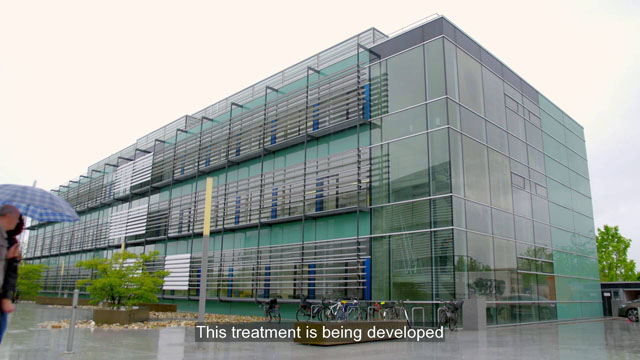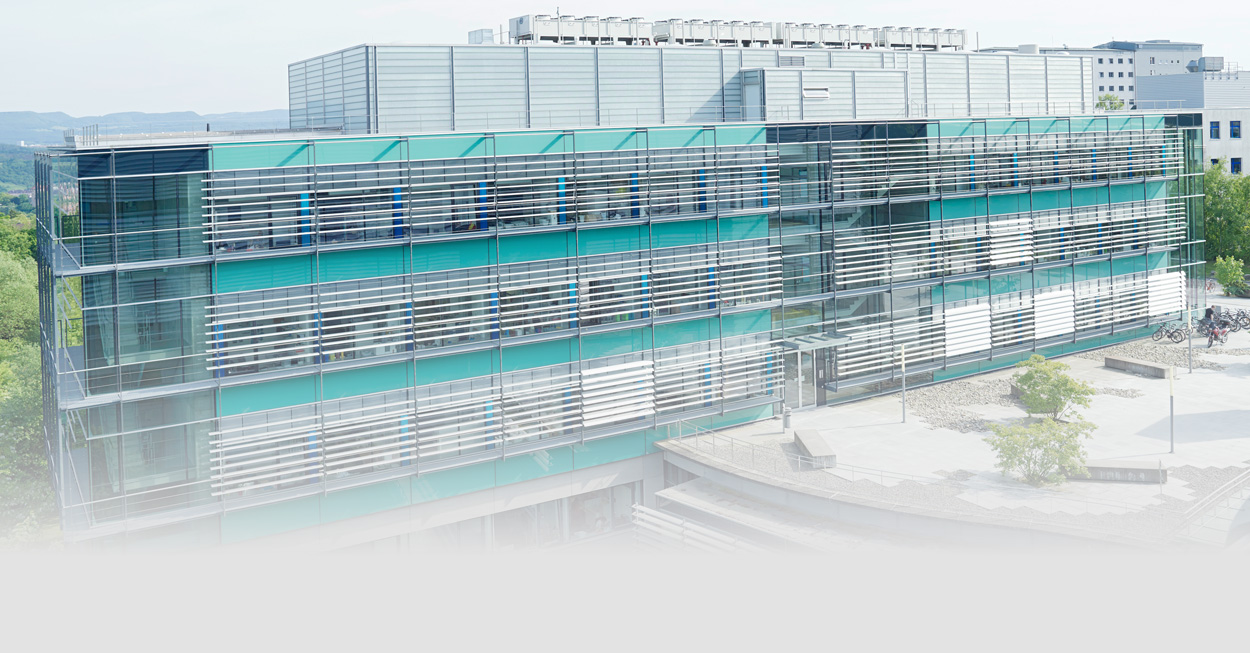
News
-

Virtual Conference 2020: Call for Contributions
The HIH will host a virtual conference on "Emerging Perspectives in Clinical Brain Research" on October 15-16, 2020.
The conference will focus on three major topics: "Molecular and Cellular Diagnosis and Therapy", "Neuroprosthetics and Innovative Neurotechnology" and "Data Science for Clinical Brain Research". You will find all the information here
Young investigators who are working in one of these fields are encouraged to send in electronic applications for an oral presentation until August 31, 2020.
For more information, please check out our Call for Contributions
-
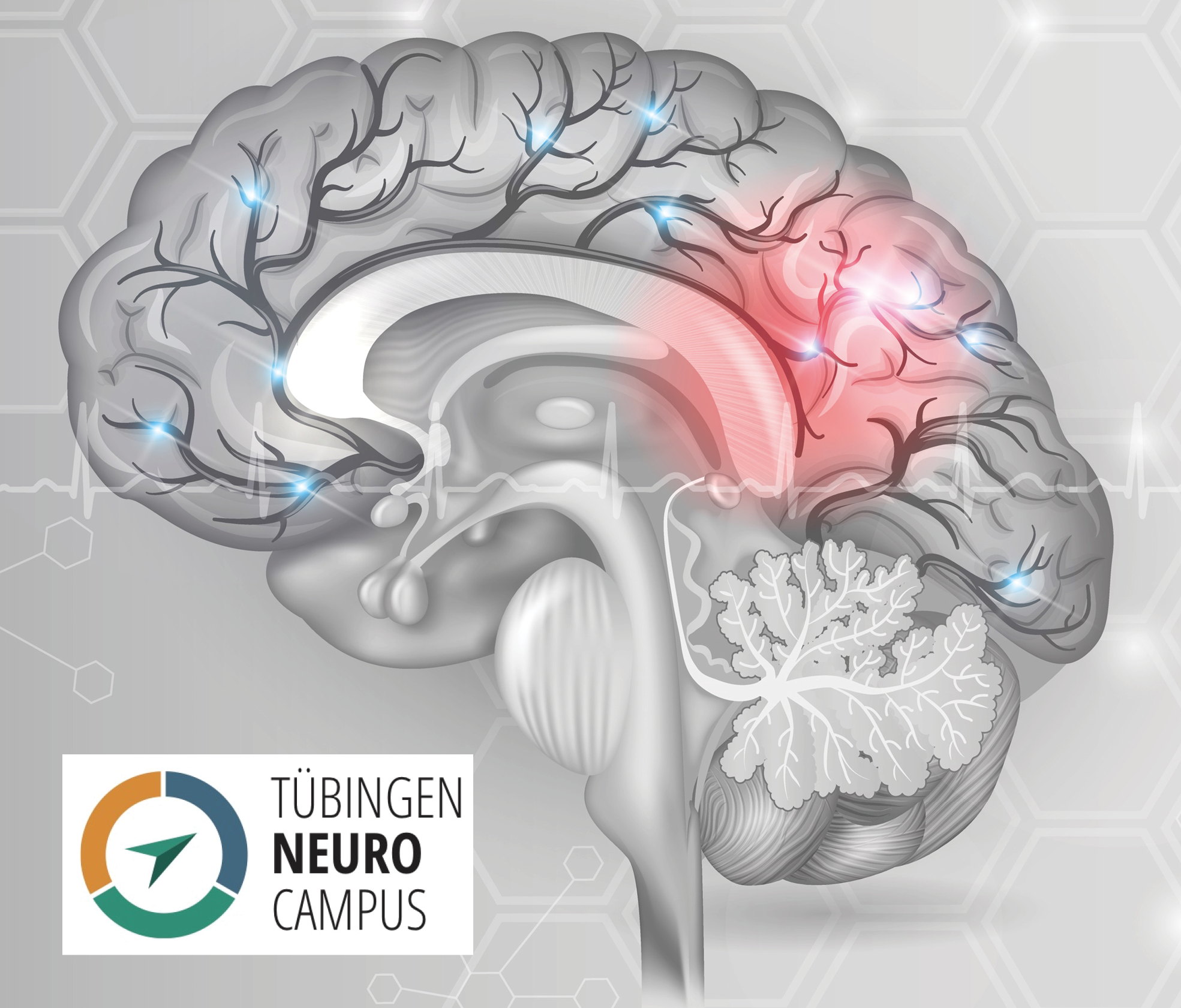
World Brain Day: Parkinson expert Thomas Gasser
For the sixth time, the World Brain Day, an initiative of the World Federation of Neurology (WFN), will take place on July 22. This year, the World Brain Day is dedicated to Parkinson's disease.
The Hertie Foundation took a look behind the scenes of the TübingenNeuroCampus (TNC) and interviewed Parkinson expert, spokesman and founding member Prof. Thomas Gasser, director of the Department of Neurodegenerative Diseases at the HIH.
"Tübingen has been one of the leading locations in the neurosciences for decades. The TNC wants to help to stimulate interdisciplinary exchange and to form networks and cooperations in order to optimally use the potential of the location in research, application and training. Our motto: excellence attracts excellence.” says Gasser.
You can find the full report here (in German only). -
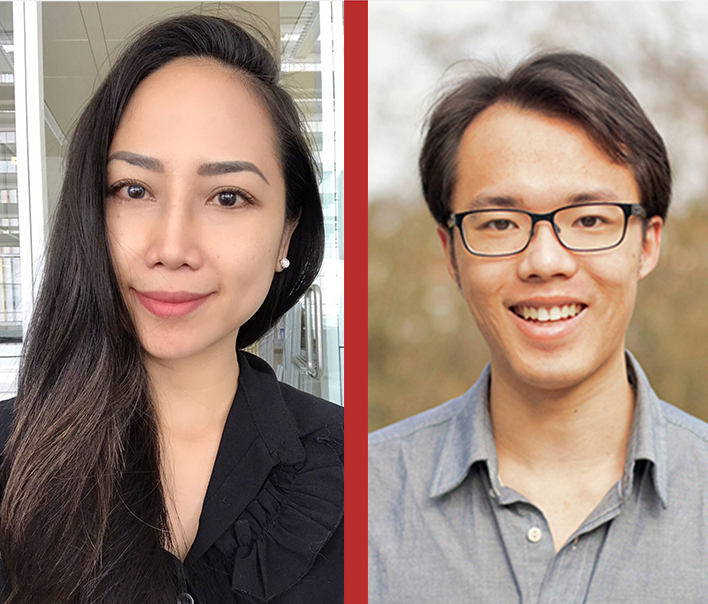
Ian Chong wins at the Hertie Science Slam
Congratulations to Ian Chong (in the picture on the right) from the Cognitive Neurology department (Prof. Peter Thier) for his first place in the category “Performance” at the first Hertie Science Slam organized by the Hertie Foundation on June 26, 2020.
Chong, together with Blair Jovellar (left in the picture) from the department Neurology with Neurovascular Medicine (Prof. Ulf Ziemann), took part in the Hertie Science Slam and was able to convince the jury with his slam on "Mindreading 101: Peeking into minds with gaze-following". The lucky winner received a ticket for the inspiring Falling Walls 2021 conference.
You can watch his slam here.
-
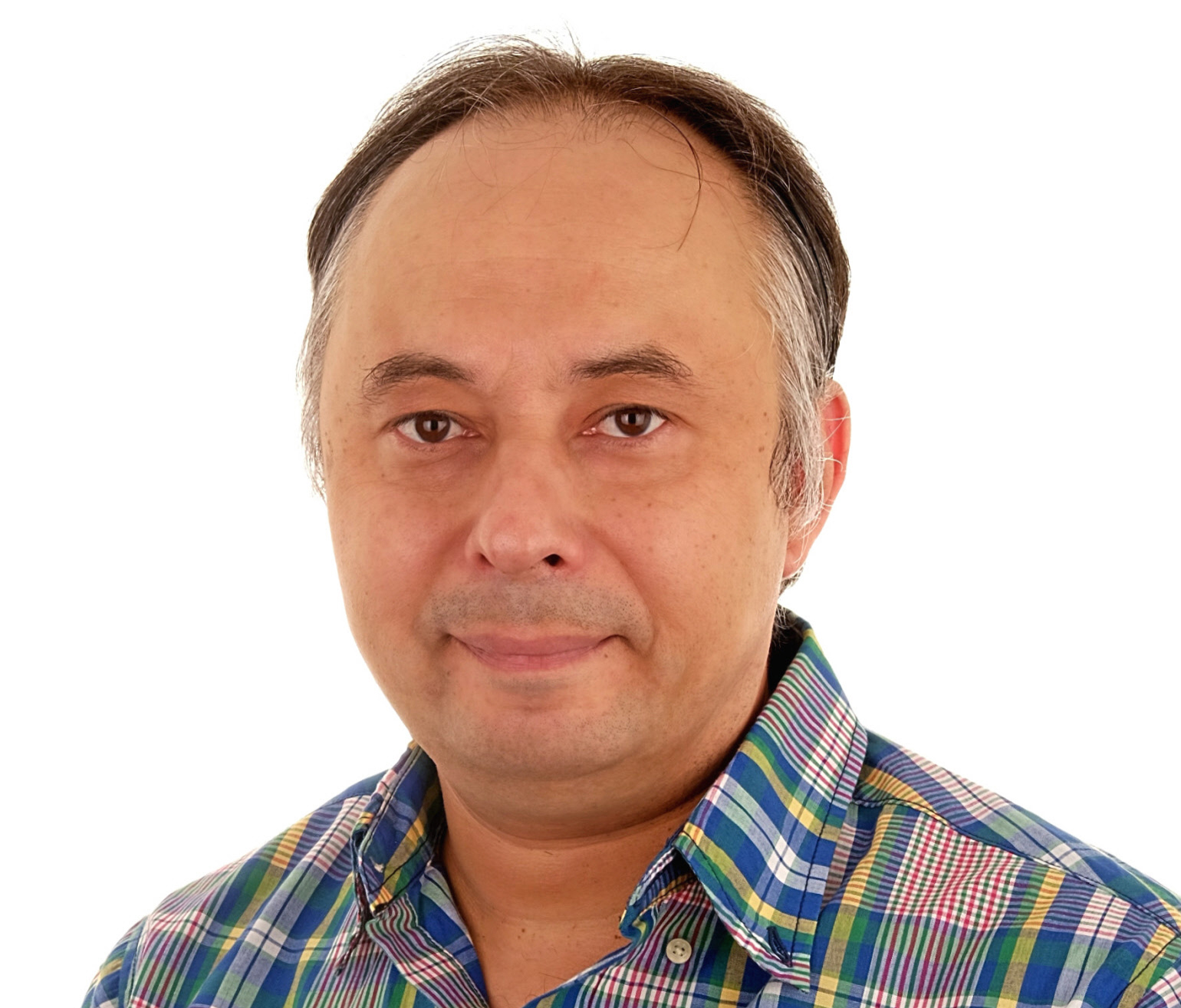
Südwestmetall-Förderpreis for Dr. Albert Mukovskiy
Congratulations to Dr. Albert Mukovskiy who has received the Südwestmetall “Förderpreis für den wissenschaftlichen Nachwuchs” 2020 for his outstanding work on cognitive robotics and movement modeling for humanoids in the group of Prof. Martin Giese “Section for Computational Sensomotorics”.
The prestigious price (endowed with 5.000 EUR) is given by the Südwestmetall-Verband der Metall- und Elektroindustrie Baden-Württemberg e.V. to outstanding junior researchers every year.
-
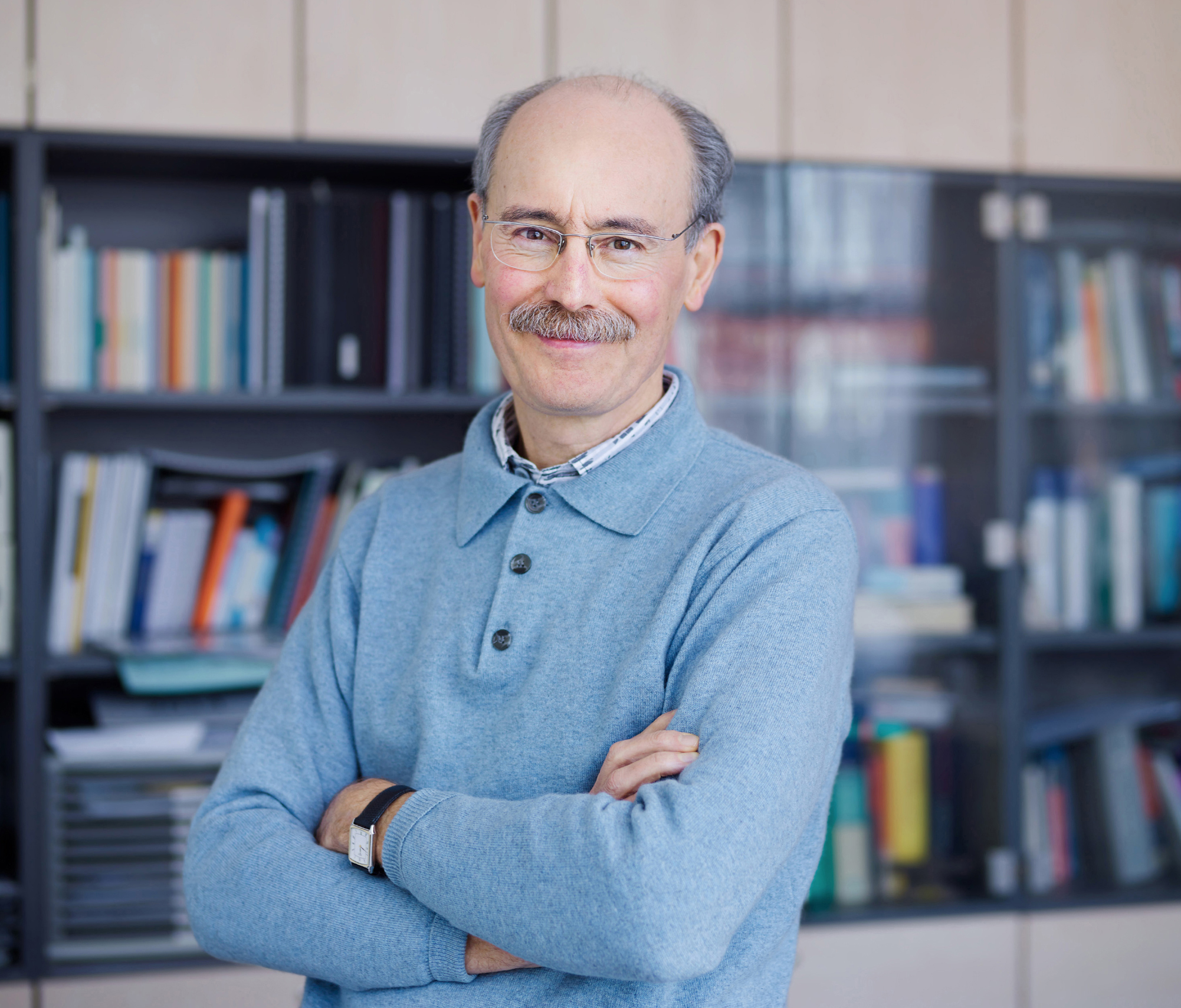
Monkeys react to animation à la Hollywood
Rhesus monkeys accept a naturalistic-looking monkey avatar as a member of the same species and encounter it with their species-specific facial expressions. They ignore unrealistic avatars.
If you want to learn more about the social interaction of monkeys, you have to present them facial expressions of their fellow members under controlled conditions, it is not possible with videos of real monkeys alone.
Therefore neuroscientists from the research groups of Professor Peter Thier and Professor Martin Giese from the HIH and the Werner Reichardt Center for Integrative Neurosciences at the University of Tübingen have developed a monkey avatar that meets these requirements.
-
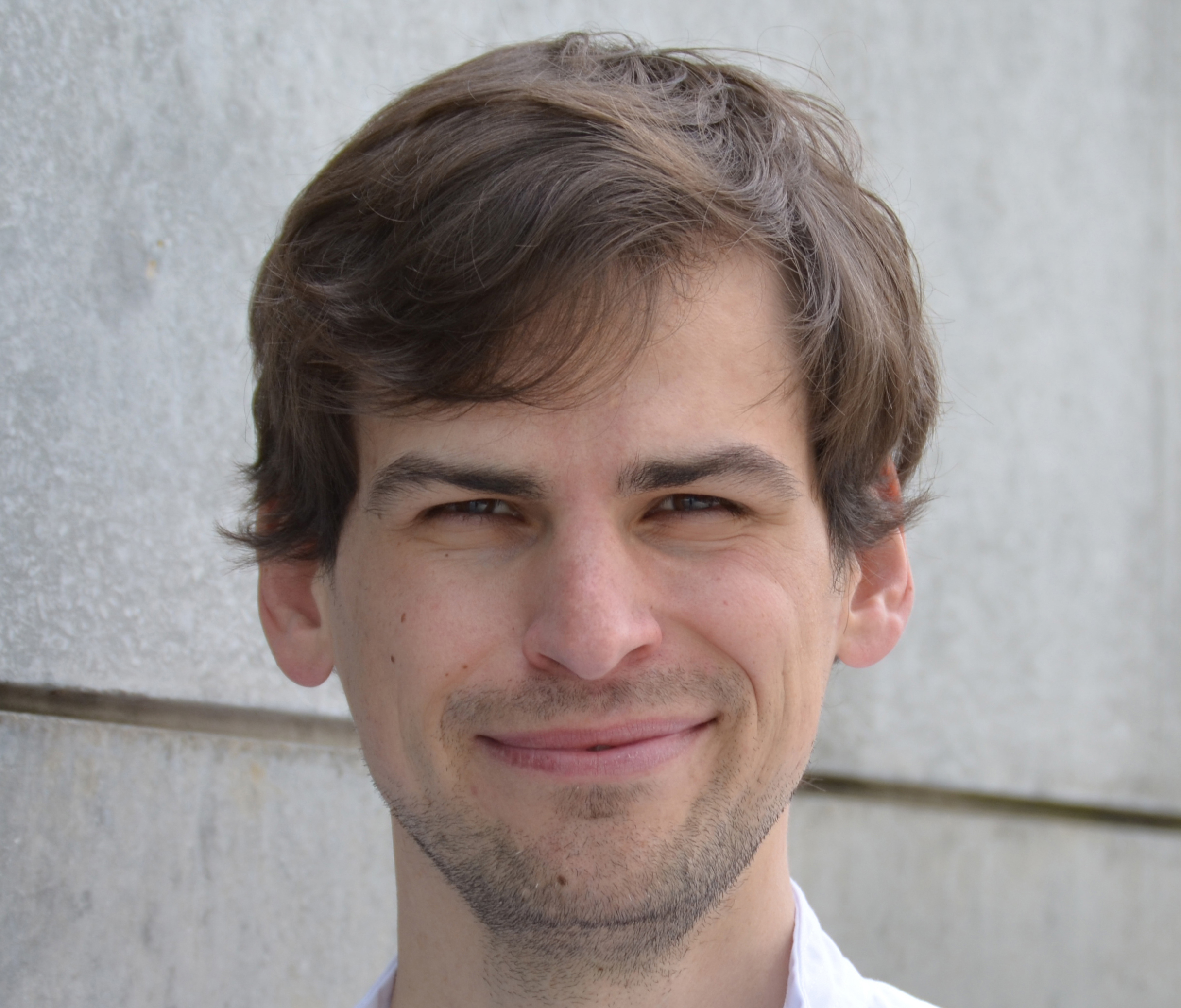
Randolph Helfrich receives funding from the Emmy Noether Programme
How does rhythmic neural activity of the brain and constantly changing attention create a stable, coherent picture of our surroundings? What ensures that this image leads to a movement or action and how does the brain abstract and generalize? What role do experience and previous knowledge play with the combination of perception and action?
Dr. Dr. Randolph Helfrich from the HIH receives up to 1.5 million euros from the DFG's Emmy Noether Programme for the search for the answers to the rhythmic building blocks of human attention. With this funding, he will set up and lead his own research group at the HIH in the coming years.More information (in German only)
The Website of Randolph Helfrich's lab can be found here.
Departments
-

Neurology and Stroke
The Department of Neurology and Stroke has the main focuses in neurovascular medicine (vessel diseases of the brain, cerebral stroke), neuro-oncology (brain tumors, brain metastases), neuro-immunology (e.g., multiple sclerosis) and neuro-intensive medicine. ...more information
-
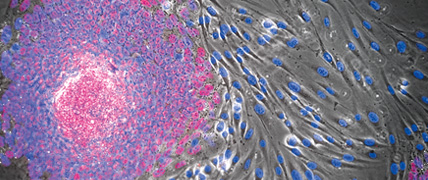
Neurodegenerative Diseases
The Department of Neurodegenerative Diseases treats in-patients on a ward of about 20 beds and in several out-patient clinics. The clinical focus lies on neurodegenerative diseases such as Parkinson’s disease, the ataxias, spastic paraplegias, and dementias. ...more information
-

Neurology and Epileptology
The Department of Neurology and Epileptology has a focus on epilepsy and other paroxysmal neurological disorders. In these diseases, the excitability of nerve cells temporarily changes either due to genetic or acquired defects. ...more information
-

Cognitive Neurology
The Department of Cognitive Neurology provides consultant and outpatient neuropsychological care. Another clinical focus is the treatment of chronic dizziness in the interdisciplinary dizziness center “Südwestdeutsches Schwindelzentrum” operated in conjunction ..more information
-
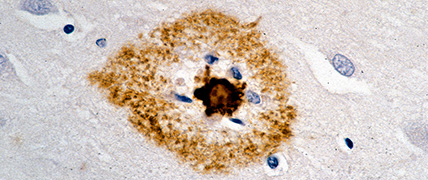
Cellular Neurology
Our research focus is on the cellular and molecular mechanisms of brain aging and age-related neurodegenerative diseases, with a special emphasis on the pathogenesis of Alzheimer´s disease and other cerebral proteopathies ...more information
-
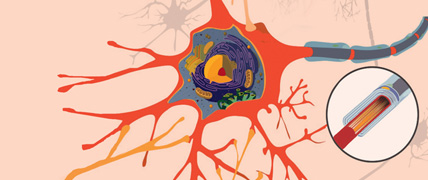
Independent Research Groups
The independent research group at the HIH focuses on the physiology of learning and memory ...more information
Research groups
-
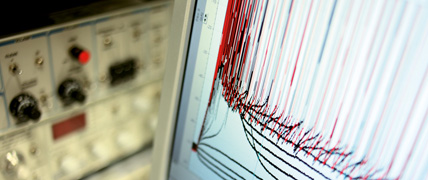
Neurology and Stroke
Brain Networks and Plasticity
The human brain possesses the remarkable capacity of reorganization, which is the basis for adapting to constantly changing environmental conditions. This plasticity is of paramount importance ...more information
-

Cognitive Neurology
Neuropsychology of Action
The Research Group "Neuropsychology of Action" is dedicated to investigations of human action control. We study clinical impairments of action control and their neural substrates in patients with brain damage ...more information
-
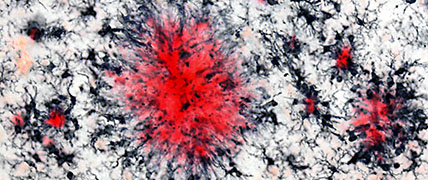
Cellular Neurology
Experimental Neuroimmunology
An immune response is part of most neurological diseases, and the development of late-onset Alzheimer's Disease (AD) has been linked to immune related genes and most recently also to epigenetic modifications. ...more information
-

Neurodegenerative Diseases
Genetics of Parkinson's disease
Parkinson's syndrome (PS) is the second most common neurodegenerative disease after Alzheimer's dementia. The vast majority of patients are ill with no apparent cause. ...more information
-
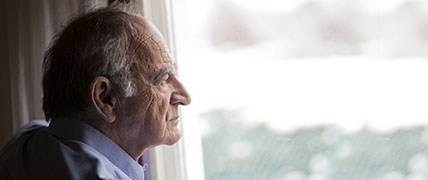
Cellular Neurology
Dementia Research Unit
The Dementia Research Unit is a clinical research unit of the Department of Cellular Neurology and the Department of Psychiatry. It closely collaborates with the outpatient Memory Clinic. ...more information
-
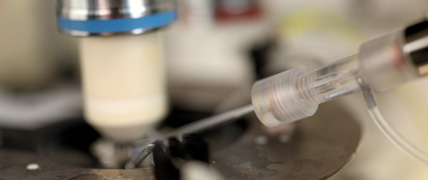
Neurology and Epileptology
Clinical Genetics of Paroxysmal Neurological Diseases
Paroxysmal neurological disorders include a broad spectrum of clinical entities such as migraine, episodic ataxia or myotonia. The research group is focussed on the clinical genetics ...more information
-

Cognitive Neurology
Neuro-Vestibular Diagnostics
The complaint of dizziness is highly prevalent but remains often an enigma to the physician in daily practice. Serious diseases potentially accompanied by dizziness like stroke, multiple sclerosis ...more information
-
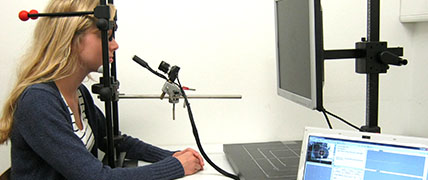
Cognitive Neurology
Oculomotor Laboratory
Playing video-games is a widely distributed leisure activity in our society. In order to estimate the consequences of video-game play, we study the details of eye movements and pupil light responses ... more information
-
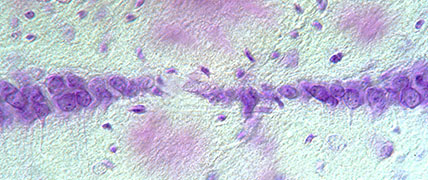
Cellular Neurology
Experimental Neuropathology
Cerebral proteopathy is a unifying term for cerebral neurodegenerative diseases in which aggregated proteins are abnormally deposited in the brain. The hallmark proteopathy is Alzheimer's disease (AD) ...more information
-
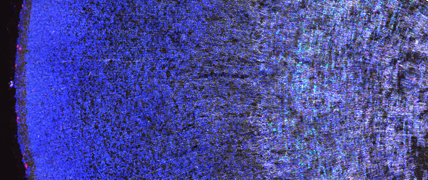
Independent Research Group
Molecular Brain Development
The mammalian neocortex is a highly complex and spatially heterogeneous structure, which has expanded significantly in mammalian evolution. Neocortical network function is at the heart of cognitive function ...more info
-

Neurology and Stroke
Neurological B cell Immunology
The research group “Neurological B cell Immunology” is focused on the role of B cells in neuro-inflammatory diseases including multiple sclerosis (MS) and... more information
-
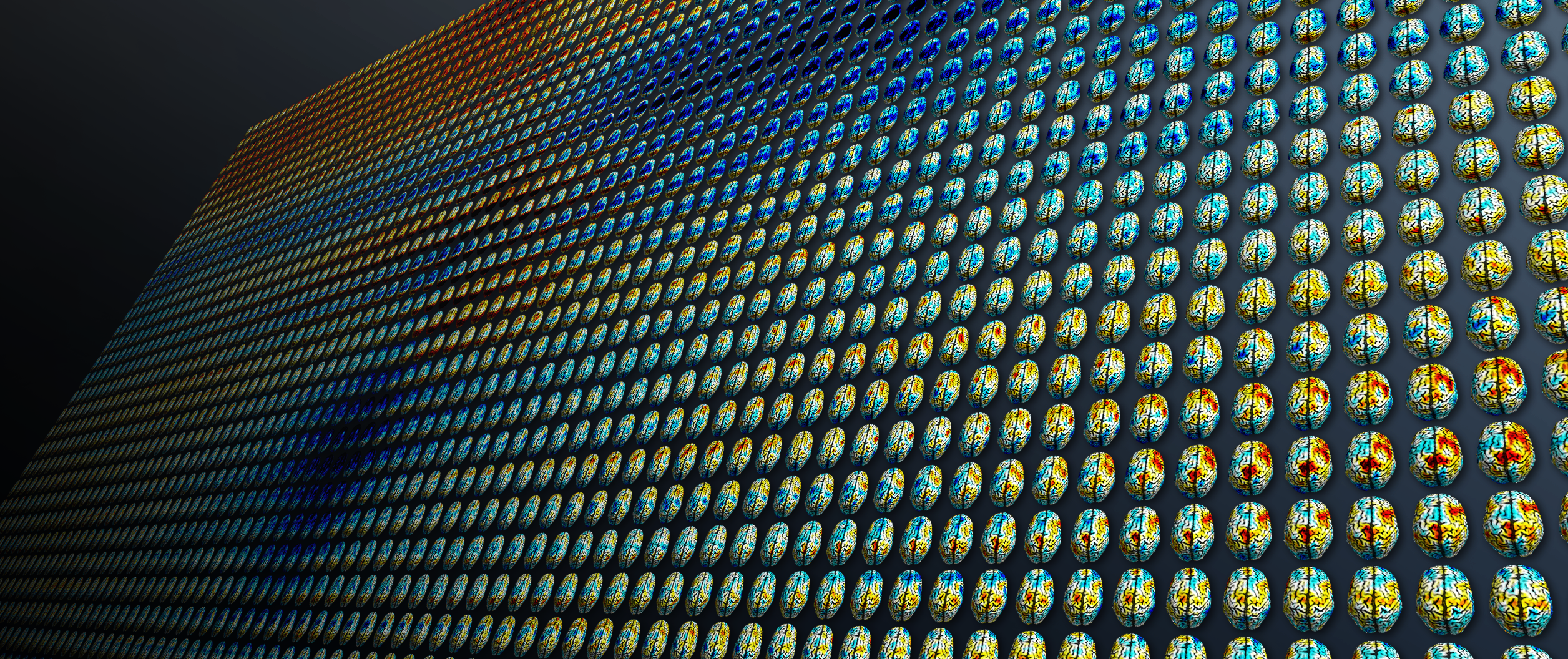
Independent Research Groups
Neural Dynamics and Magnetoencephalography
The central goal of the laboratory is to investigate how cognition and behavior emerges from dynamic interactions across widely distributed neuronal ensembles... more information
Research groups
-
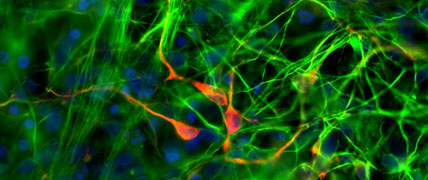
Neurodegenerative Diseases
Clinical Parkinson's Disease Research
Parkinson's disease (PD) is the second most frequent neurodegenerative disorder after Alzheimer’s disease and affects about 1 to 2 % of individuals over the age of 65. The number is steadily increasing due to demographic changes in Western countries. ...more information
-
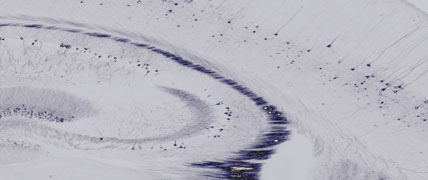
Cellular Neurology
Molecular Imaging Unit
The Molecular Imaging Unit focuses on the visualization of Alzheimer’s disease (AD) and Parkinson's disease (PD) related changes in model systems using in vivo multiphoton microscopy ...more information
-
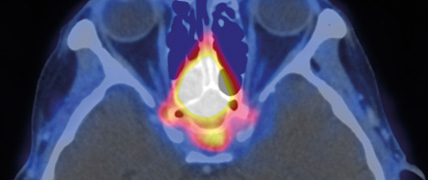
Neurology and Stroke
Molecular Neurooncology
Three to five of 100.000 people are annually diagnosed with a glioblastoma (GBM), the most malignant brain tumor in adults. Despite aggressive multimodal treatment including surgical resection and ...more information
-

Unit
Cellular Neurology
Molecular Biomarkers Unit
Processes related to Alzheimer ́s disease (AD) and other age-related neurodegenerative diseases start many years before the onset of the first clinical symptoms. At the moment of the first clinical complaints, the disease has already caused ...more information
-
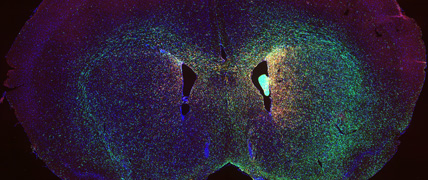
Neurology and Stroke
Interdisciplinary Section of Neuro-Oncology
The projects of the lab are focusing on the biology of brain tumors, especially with targeted individualized therapies, molecular mechanisms in the development of resistance and cell based therapy approaches ...more information
-
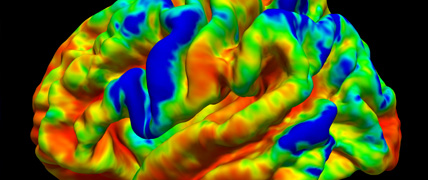
Neurology and Epileptology
Translational Imaging
The focus of our research group is the structural and functional imaging of neurological diseases with a particular focus on epileptology. We use multi-modal imaging techniques to improve the understanding of disease development ...more information
-
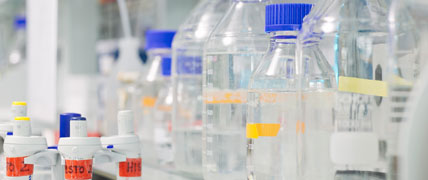
Neurodegenerative Diseases
Dystonia
Dystonia is the third most common movement disorder, and mutations in a growing number of genes have been identified as causes for hereditary forms in many cases. The aim of the group, which brings together clinical experience ...more information
-
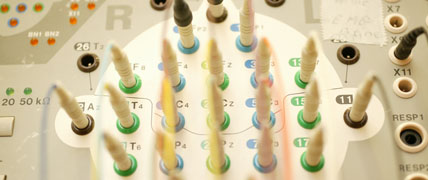
Neurology and Stroke
Neurophonetics and Translational Neurorehabilitation
The work group Neurophonetics and Translational Neurorehabilitation is based on a cooperation between the University of Tübingen and a neurological rehabilitation clinic (Fachkliniken Hohenurach). ...more information
-
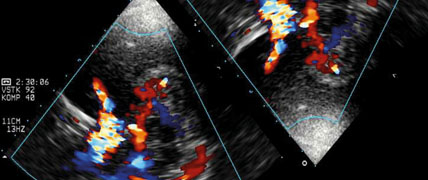
Neurology and Stroke
Stroke and Neuroprotection
The research focus of our Stroke and Neuroprotection Laboratory is to find new and to optimize existing neuroprotective strategies ...more information
-
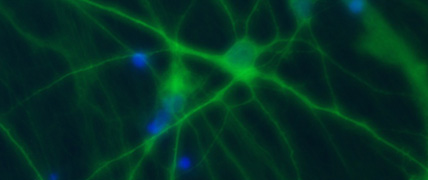
Neurology and Epileptology
Experimental Epileptology
Our research group is interested to unravel the mechanisms of well defined, mainly genetic, neurological, paroxysmal diseases, to understand correlations with clinical symptoms and to find new treatment options. ...more information
-
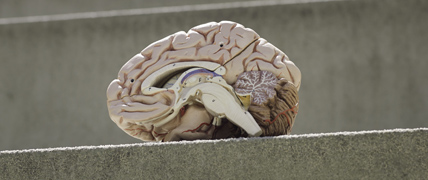
Cognitive Neurology
Active Perception Lab
Humans are tremendously reliant on the sense of vision to interact with their environment. Such interaction often involves the generation of motor outputs ...more information
-
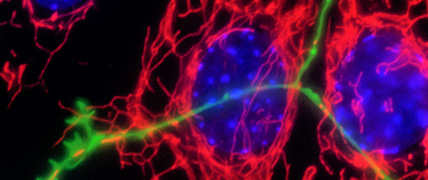
Neurodegenerative Diseases
Mitochondrial Biology of Parkinson’s Disease
Neurodegenerative disorders are associated in a proportion of cases with genetic risk and gene mutations. However, the vast majority …more info
-
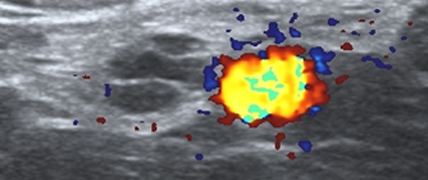
Neurology and Epileptology
Neuromuscular Imaging Group
The group works on different projects concerning nerve imaging, particularly high-resolution ultrasound in neuromuscular disorders ...more information
Research groups
-

Neurology and Epileptology
Migraines and Primary Headache Disorders
Our group aims at unraveling the molecular pathophysiology of migraine and other primary headache disorders. ...more information
-
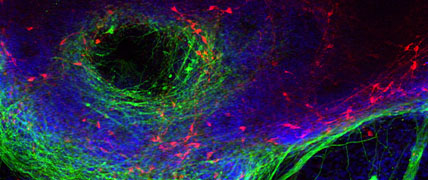
Neurodegenerative Diseases
Section for Clinical Neurogenetics
Neurogenetic diseases like cerebellar ataxia, hereditary spastic paraplegia and leukodystrophy are rare disorders. ...more information
-

Neurodegenerative Diseases
Systems Neurodegeneration
Our research focuses on the investigation of the genetic basis, systems neuroscience and paradigmatic therapy approaches in ...more information
-
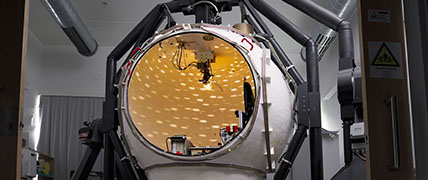
Cognitive Neurology
Sensorimotor Lab
The lab addresses a variety of topics that, at first glance, may look disparate. Yet, there is a common denominator ...more information
-
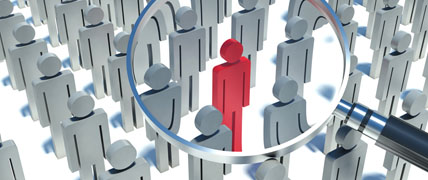
Neurodegenerative Diseases
Genomic of Rare Movement Disorders
Our group specializes in rare diseases. A disease is called rare, when it affects no more than 5 of 100,000 people. However, in the grand-scheme of things, rare diseases are not quite so rare ...more information
-
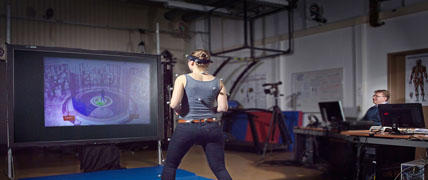
Cognitive Neurology
Section for Computational Sensomotorics
The Section for Computational Sensomotorics investigates theoretical principles in the perception and control of motor actions. Research is organized around three main topics ...more information
-
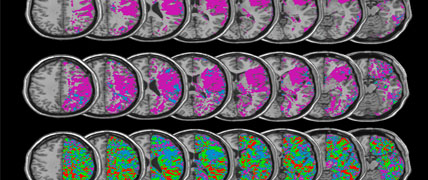
Cognitive Neurology
Section for Neuropsychology
The Section for Neuropsychology focuses on the investigation of spatial cognition and object recognition in humans. The current issues of our work comprise the action control and sensorimotor coordination ...more information
-

Neurodegenerative Diseases
Functional Neurogenetics
Age-related neurodegenerative diseases are a severe and increasingly worrisome burden for our aging population. Most of the chronic neurodegenerative diseases ...more information
-

Independent Research Groups
Learning and Memory
All organisms continuously have to adapt their behavior according to changes in the environment in order to survive. This is particularly important when learning to predict threatening or dangerous situations. ...more information
-

Cognitive Neurology
Systems Neurophysiology Lab
The overarching goal of our work is to understand the operating principles of the neocortex, a unique brain structure, which mainly evolved in mammals. There is clear evidence that the neocortex, in the broadest sense, endows the subject with cognitive capabilities. ...more information
-
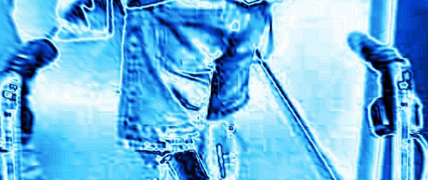
Neurodegenerative Diseases
Deep Brain Stimulation
The working group aims to uncover mechanisms of action of deep brain stimulation therapy and to translate the pathophysiological insights into future developments. …more information
-
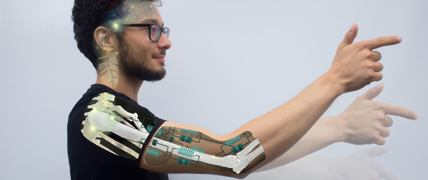
Cognitive Neurology
Motor Control Modeling
The research group „Multi-Level Modeling in Motor Control and Rehabilitation Robotics“ focuses on the generation and control of active biological movements. We develop ...more information
An exemplary connection between research and clinical care
 The German Council of Science and Humanities recognizes the performance and academic excellence of theHertie Institute for Clinical Brain Research. The recommendation of the council is an excellent basis for the further development of the HIH.
The German Council of Science and Humanities recognizes the performance and academic excellence of theHertie Institute for Clinical Brain Research. The recommendation of the council is an excellent basis for the further development of the HIH.
Press release by the German Council of Science and Humanities (Wissenschaftsrat)

